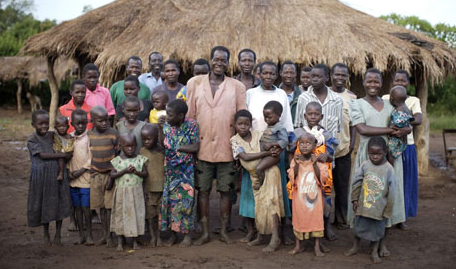October 15, 2011
Kids
A popular question I get is: "How many are you?"
This is not directed nationally, as in how many musungus? But it is restrict to one's immediate family: I have two siblings, and together we are three, is my answer. I usually return the question, as I am learning to be less introverted. Often the answer is "We are just nine." Zambians have big families, even bigger as it is common to absorb orphans and relatives. But why the high birth rate?
One theory is that Africans don't use birth control methods and/or the patriarchal system leaves women with little choice or education in controlling the amount of children they have. While this has come validity, I don't necessarily buy it.
Another is that in the developing context, more children makes economic sense. In the Western world we are used to the phrase "more mouths to feed" and see children as a cost to the family budget. And children, in our context, are expensive, and they haven't generated income since child labor laws were instated. In developing countries, it's different. Children help out at the farm, even a baby can watch the animals. Older youth take care of the younger, so it's beneficial to have a string of children. Children bring in income, rather than drain it. In this context, more children is economically better (at least to the family unit). And in the Zambian village, where food is shared freely, an individual child's drain on the communal food pot is not seen, whereas children's food and beverage is distinguish from adult's, an outcome of a highly diverse retail market, thus it has a perceptible cost.
One other theory is that recent enhancements in medicine and child delivery, the local clinic and sponsored maternity classes, has been introduced so recently that cultural behavior - having more pregnancies to offset a high child mortality rate - has not caught up yet.
More, less grand theories: Zambian girls get married younger, and, biologically, they have their first periods earlier; so their time span for pregnancies is longer, etc. Obviously traditional explanations behind the phenomenon of high birth rates - such as the idea that having a large family will ensure one is taken care of as old age sets in - is hardly the cause of the behavior, but rather an hypothesis set forth when the actual cause is unknown, even to the parents and children of large families. Many of these are surface theories, what I'm looking for are ones which strive to puncture the depths of the issue to find the causes. So I'll keep looking.
Subscribe to:
Post Comments (Atom)

No comments:
Post a Comment